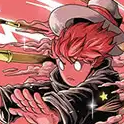Histórico de Edições
Please note that revisions older than 15 days are pruned and will no longer show here
Não há histórico de edição para mostrar, ou este comentário foi editado por um moderador.
-
Quem Está Navegando 0 membros estão online
Nenhum usuário registrado visualizando esta página.
-
Conteúdo Similar
-
Por Bagon
Bom, hoje venho trazer á vocês um sistema de Pet System DIFERENCIADO de alguns presentes no fórum. Este sistema tem diversos comandos diferenciados, como:
!pet nomedopet este comando irá sumonar o pet.
!remove irá remover o pet.
!fale eu sou lindo o pet falará "eu sou lindo"
!conversar o pet irá conversar com vc.
Então sem mais delongas vamos ao script.
OBS: SCRIPT TESTADO SOMENTE EM TFS 0.4/0.3, e este script foi feito com a intenção de ser vendido no site do ot ou em poderá usar como quest usando o item selecionado como premio. fique ao seu critério.
Primeiro vá até a pasta talkaction/script e crie um arquivo chamado petsystem.lua, depois coloque o seguinte script:
Agora em talkactions/talkactions.xml adicione a seguinte tag:
<talkaction words="!pet;!remove;!fale;!conversar" event="script" value="petsystem.lua" />
EXPLICAÇÂO:
As partes em Negrito, são os pets. Você pode alterar ou criar monstros para fazer eles como pets. (Recomendo criar um monstro para que seja somente pet.)
Exemplo: ["dog"]= {stor=78552},
Lembrando que é necessário mudar esta parte no script do monstro colocado a cima.
<flag attackable="1" /> para :
<flag attackable="0" />
agora vá em action/script e crie um arquivo chamado pet com o seguinte script:
e vá em action.xml e adiciona a seguinte tag:
<action itemid="10063" script="pet.lua"/> Explicação: Na tag da action o itemid é o item que deverá ser usado para ganhar a storage 78552, e assim podera sumonar o monstro com esta storage.
CRIE UMA ACTION COM A TAG A CIMA PARA CADA MONSTRO COLOCADO NA TALKACTION,
BASTA VC ALTERAR A STORAGE DO SCRIPT DA ACTION
EXEMPLO: em action altere as storage que estão em vermelho, como mostra abaixo
if getPlayerStorageValue(cid, 78552) < 1 then
setPlayerStorageValue(cid, 78552, 1)
aonde tem 78552 altere para 78553 que no caso é a storage do cyclops escolhido lá no script da talkaction
e assim susecivelmente.
CREDITOS:
Mulizeu
Smartbox
Bagon
-
Por ambrozii0
Gostaria de fazer um pedido de um NPC de Task progressiva,
Ele iniciaria dando missões para level 8 para caçar Troll, Rotworm e Ghoul.
No level 30 liberaria: Cyclops, Dragon e Wyrm... e assim em diante se puder deixar comentado eu faço as criaturas na sequencia dos leveis seguintes.
O jogador pode fazer as tasks dos leveis anteriores mesmo que já tenha ultrapassado o level do próximo nível de task.
E o jogador ao terminar a missão poderia escolher a recompensa em gold ou experiência. As tasks podem se repetir sem problema, mas apenas pode pegar uma de cada vez.
Ao finalizar todas as tasks o jogador ganha uma montaria.
Minha versão de cliente é 12.91
Versão da Canary 2.6.1
Não sei qual o TFS do meu servidor.
-
Por Imperius
Olá, pessoal! Acabei encontrando um script que tinha feito a um tempo atrás. Estou compartilhando aqui para quem quiser usar ou melhorar.
É bem parecido com os outros sistemas de roleta, igual deste tópico: https://tibiaking.com/forums/topic/101557-action-cassino-roleta-de-items/
Como funciona?
O "Treasure Chest" é um item custom, onde o jogador têm a possibilidade de ganhar itens raros ou bem meia boca. Tudo dependerá da sorte.
O jogador precisa tacar o treasure chest na bancada e acionar a alavanca. O treasure chest irá se transformar em vários itens de forma randômica no qual o jogador poderá ou não ganhar. No final, apenas um item é entregue ao jogador.
Para entender melhor o seu funcionamento, segue o GIF abaixo:
em data > actions > actions.xml
em data > actions > scripts > crie um arquivo chamado leverTreasureChest.lua
no banco de dados do servidor, adicione o seguinte código em "SQL":
Também estou disponibilizando uma página PHP, para quem quiser usar no site do servidor. Na página tem informações sobre o funcionamento, quais são os possíveis prêmios e a lista de jogadores que ganharam os itens raros.
Espero ter ajudado de alguma forma! : )
treasure_chest.php
-
Por Garou
QUIZ
Fala, grande reino! Tudo beleza?
Eu estava aqui a deriva, sem nada para fazer, quando um colega me chamou no msn e pediu para eu revisar um código que ele havia feito para um NPC. A função era bem simples, o tal NPC iria fazer perguntas ao jogador que devia responder-las corretamente, caso errasse, duas criaturas configuráveis iriam aparecer.
Quando eu dei uma olhada no código, tomei um grande susto, era algo caótico, tudo embaralhado. Se você quer dar uma olhada, tenha certeza de ter um coração forte.
--[[ NPC de Perguntas e Respostas Criado por Bruno Lopes / Lpz © 2011 TibiaKing ]]-- local focuses = {} local talk_start = 0 local topic = {} local var = 0 local quiz = { [1] = {"What is the ring of mana?", "energy ring"}, [2] = {"Who sells addons?", "raphael"} } local monster = {"Orc", 2} local prize = { question = 100, all = 10000 } function onCreatureSay(cid, type, msg) local msg = msg:lower() or "" if getNpcDistanceTo(cid) > 3 then return false end if doMessageCheck(msg, {"hi", "hello"}) and not(isFocused(cid, focuses)) then selfSay("Hello, ".. getCreatureName(cid) ..". Can you answer my questions? heh...", cid) addFocus(cid, focuses) selfFocus(cid) topic[cid] = 100 talk_start = os.clock() elseif doMessageCheck(msg, {"hi", "hello"}) and #focuses ~= 0 then selfSay("Sorry, ".. getCreatureName(cid) ..". I am talking with another person, wait!", cid) end if doMessageCheck(msg, {"bye", "farewell", "goodbye"}) and isFocused(cid, focuses) then selfSay("Bye-bye, hehe!", cid) removeFocus(cid, focuses) end if topic[cid] == 100 then if doMessageCheck(msg, "yes") then selfSay("To start my challenge, just say {ready}. I will ask you some questions.", cid) topic[cid] = 1 elseif doMessageCheck(msg, "no") then selfSay("Huh? Why are you here then?", cid) removeFocus(cid, focuses) topic[cid] = 0 end elseif topic[cid] == 1 then if var == 0 then if doMessageCheck(msg, "ready") then var = 1 selfSay(quiz[var][1], cid) end elseif var >= 1 then if var <= #quiz then if doMessageCheck(msg, quiz[var][2]) then selfSay("CORRECT!", cid) doPlayerAddMoney(cid, prize.question) var = var+1 if var > #quiz then selfSay("CONGRATULATIONS! YOU HAVE FINISHED ALL QUESTIONS!", cid) doPlayerAddMoney(cid, prize.all) else selfSay(quiz[var][1], cid) end else selfSay("YOU HAVE WRONG MY QUESTION! GUARDS, COME HERE!", cid) var = 0 topic[cid] = 0 removeFocus(cid, focuses) for i = 1, monster[2] do doCreateMonster(monster[1], getNpcPos()) end end end end end return true end function onThink() for _, cid in ipairs(focuses) do if isPlayer(cid) and isFocused(cid, focuses) then if os.clock() > (talk_start + 180) then talk_start = 0 selfSay("Hmph!") closeShopWindow(cid) removeFocus(cid, focuses) elseif getNpcDistanceTo(cid) > 3 then talk_start = 0 selfSay("How Rude!") closeShopWindow(cid) removeFocus(cid, focuses) end end end lookAtFocus(focuses) end Bom, eu fiz o arquivo .lua que você iria associar a algum npc de seu servidor, deixo o arquivo .xml por sua conta. Como é um NPC que faz perguntas, você pode configurar o seu NPC do jeito que você quiser, com as perguntas que você quiser. Veja abaixo como proceder: local quiz = { [1] = {"What is the ring of mana?", "energy ring"}, [2] = {"Who sells addons?", "raphael"} } Para adicionar novas perguntas, basta você colocar uma vírgula na última linha e criar uma nova linha conforme o modelo: local quiz = { [1] = {"What is the ring of mana?", "energy ring"}, [2] = {"Who sells addons?", "raphael"}, [3] = {"PERGUNTA", "RESPOSTA"}, [4] = {"PERGUNTA", "RESPOSTA"} } Há também algumas outras configurações básicas para você fazer, as criaturas que irão aparecer caso o jogador erre a pergunta e a quantidade. Também você pode configurar a quantidade de dinheiro que o jogador ganha quando acerta uma pergunta e a quantidade de dinheiro do prêmio final. local monster = {"Orc", 2} local prize = { question = 100, all = 10000 } OBSERVAÇÕES Para evitar quaisquer erros no script, substitua o conteúdo de npc.lua em data/npc/lib por este que estou passando abaixo:
É isso aê, galerinha do tibiaKing!
Até o próximo tópico.
-
Por Codex NG
Sorry I don't speak spanish so you will have to bare with me.
This is a new way for people to create npc's which use different types of currency, rather than a coming up with different items to trade with the npc or trying to edit the npc modules this method simplifies everything by providing the npc with a npc currency id.
All this npc currency id is, is a storage value.. pretty simple eh?
If the npc doesn't have a currency id then it will use the normal currency e.g. gold, plat, cc etc..
I originally posted this on otland, but fuck them xD
Using Lailene here you can see she has a currency attribute with id of 123456
<?xml version="1.0" encoding="UTF-8"?> <npc name="Lailene" currency="123456" script="lailene.lua" walkinterval="2000" floorchange="0" speechbubble="2"> <health now="100" max="100"/> <look type="279" head="114" body="94" legs="113" feet="114" addons="0"/> </npc>
Now any player who has a storage value of 123456 can purchase things from her shop provided they have enough value stored within the storage, similar to having money in the bank.
The money or in this case the storage value is added and removed from the player in real time.
Lets get to the code
game.cpp
Find this
bool Game::removeMoney(Cylinder* cylinder, uint64_t money, uint32_t flags /*= 0*/) Replace the whole function with this.
bool Game::removeMoney(Cylinder* cylinder, uint64_t money, uint32_t flags /*= 0*/) { if (cylinder == nullptr) { return false; } if (money == 0) { return true; } uint32_t currencyId = 0; Player* player; if (Creature* creature = cylinder->getCreature()) { if (Player* p = creature->getPlayer()) { currencyId = p->getNpcCurrencyId(); player = p; } } if (!currencyId) { std::vector<Container*> containers; std::multimap<uint32_t, Item*> moneyMap; uint64_t moneyCount = 0; for (size_t i = cylinder->getFirstIndex(), j = cylinder->getLastIndex(); i < j; ++i) { Thing* thing = cylinder->getThing(i); if (!thing) { continue; } Item* item = thing->getItem(); if (!item) { continue; } Container* container = item->getContainer(); if (container) { containers.push_back(container); } else { const uint32_t worth = item->getWorth(); if (worth != 0) { moneyCount += worth; moneyMap.emplace(worth, item); } } } size_t i = 0; while (i < containers.size()) { Container* container = containers[i++]; for (Item* item : container->getItemList()) { Container* tmpContainer = item->getContainer(); if (tmpContainer) { containers.push_back(tmpContainer); } else { const uint32_t worth = item->getWorth(); if (worth != 0) { moneyCount += worth; moneyMap.emplace(worth, item); } } } } if (moneyCount < money) { return false; } for (const auto& moneyEntry : moneyMap) { Item* item = moneyEntry.second; if (moneyEntry.first < money) { internalRemoveItem(item); money -= moneyEntry.first; } else if (moneyEntry.first > money) { const uint32_t worth = moneyEntry.first / item->getItemCount(); const uint32_t removeCount = (money / worth) + 1; addMoney(cylinder, (worth * removeCount) - money, flags); internalRemoveItem(item, removeCount); break; } else { internalRemoveItem(item); break; } } } else { int32_t value; player->getStorageValue(currencyId, value); if (value < money) { return false; } player->addStorageValue(currencyId, value - money); } return true; } Next find this
void Game::addMoney(Cylinder* cylinder, uint64_t money, uint32_t flags /*= 0*/) Replace the whole function with this
void Game::addMoney(Cylinder* cylinder, uint64_t money, uint32_t flags /*= 0*/) { if (money == 0) { return; } if (Creature* creature = cylinder->getCreature()) { if (Player* player = creature->getPlayer()) { if(uint32_t currencyId = player->getNpcCurrencyId()){ int32_t value; player->getStorageValue(currencyId, value); player->addStorageValue(currencyId, value + money); return; } } } uint32_t crystalCoins = money / 10000; money -= crystalCoins * 10000; while (crystalCoins > 0) { const uint16_t count = std::min<uint32_t>(100, crystalCoins); Item* remaindItem = Item::CreateItem(ITEM_CRYSTAL_COIN, count); ReturnValue ret = internalAddItem(cylinder, remaindItem, INDEX_WHEREEVER, flags); if (ret != RETURNVALUE_NOERROR) { internalAddItem(cylinder->getTile(), remaindItem, INDEX_WHEREEVER, FLAG_NOLIMIT); } crystalCoins -= count; } uint16_t platinumCoins = money / 100; if (platinumCoins != 0) { Item* remaindItem = Item::CreateItem(ITEM_PLATINUM_COIN, platinumCoins); ReturnValue ret = internalAddItem(cylinder, remaindItem, INDEX_WHEREEVER, flags); if (ret != RETURNVALUE_NOERROR) { internalAddItem(cylinder->getTile(), remaindItem, INDEX_WHEREEVER, FLAG_NOLIMIT); } money -= platinumCoins * 100; } if (money != 0) { Item* remaindItem = Item::CreateItem(ITEM_GOLD_COIN, money); ReturnValue ret = internalAddItem(cylinder, remaindItem, INDEX_WHEREEVER, flags); if (ret != RETURNVALUE_NOERROR) { internalAddItem(cylinder->getTile(), remaindItem, INDEX_WHEREEVER, FLAG_NOLIMIT); } } }
npc.cpp
Look for this
pugi::xml_attribute attr; if ((attr = npcNode.attribute("speed"))) { baseSpeed = pugi::cast<uint32_t>(attr.value()); } else { baseSpeed = 100; } Right underneath that you are going to place this.
if ((attr = npcNode.attribute("currency"))) { currency = pugi::cast<uint32_t>(attr.value()); }
npc.h
Look for this
bool isPushable() const final { return walkTicks > 0; } Place this right underneath
uint32_t getCurrencyId() const { return currency; } Look for this
uint32_t walkTicks; Place this right underneath
uint32_t currency;
player.cpp
Find this
void Player::openShopWindow(Npc* npc, const std::list<ShopInfo>& shop) Replace that function with this
void Player::openShopWindow(Npc* npc, const std::list<ShopInfo>& shop) { shopItemList = shop; sendShop(npc); sendSaleItemList(npc); } Next find this
bool Player::updateSaleShopList(const Item* item) Replace that function with this
bool Player::updateSaleShopList(const Item* item) { uint16_t itemId = item->getID(); if (itemId != ITEM_GOLD_COIN && itemId != ITEM_PLATINUM_COIN && itemId != ITEM_CRYSTAL_COIN) { auto it = std::find_if(shopItemList.begin(), shopItemList.end(), [itemId](const ShopInfo& shopInfo) { return shopInfo.itemId == itemId && shopInfo.sellPrice != 0; }); if (it == shopItemList.end()) { const Container* container = item->getContainer(); if (!container) { return false; } const auto& items = container->getItemList(); return std::any_of(items.begin(), items.end(), [this](const Item* containerItem) { return updateSaleShopList(containerItem); }); } } if (client) { client->sendSaleItemList(shopOwner, shopItemList); } return true; } Next you are going to look for
uint64_t Player::getMoney() const Now right underneath that function you are going to place these.
uint64_t Player::getMoney(Npc* npc) const { uint64_t cash; setNpcCurrencyId(npc); uint32_t currencyId = getNpcCurrencyId(); if (currencyId) { int32_t value; getStorageValue(currencyId, value); cash = (uint64_t)value; } else { cash = getMoney(); } return cash; } void Player::setNpcCurrencyId(Npc* npc) const{ currencyId = npc->getCurrencyId(); } uint32_t Player::getNpcCurrencyId() const { return currencyId; }
player.h
Look for this
uint64_t getMoney() const; Place this right underneath
uint64_t getMoney(Npc*) const; void setNpcCurrencyId(Npc*) const; uint32_t getNpcCurrencyId() const; Find this
void sendShop(Npc* npc) const { if (client) { client->sendShop(npc, shopItemList); } } Place this right underneath
void sendSaleItemList(Npc* npc) const { if (client) { client->sendSaleItemList(npc, shopItemList); } } Find this
uint32_t manaMax; Place this right underneath
mutable uint32_t currencyId;
protocolgame.cpp
Now find this function
void ProtocolGame::sendSaleItemList(const std::list<ShopInfo>& shop) Place this right underneath
void ProtocolGame::sendSaleItemList(Npc* npc, const std::list<ShopInfo>& shop) { NetworkMessage msg; msg.addByte(0x7B); msg.add<uint64_t>(player->getMoney(npc)); std::map<uint16_t, uint32_t> saleMap; if (shop.size() <= 5) { // For very small shops it's not worth it to create the complete map for (const ShopInfo& shopInfo : shop) { if (shopInfo.sellPrice == 0) { continue; } int8_t subtype = -1; const ItemType& itemType = Item::items[shopInfo.itemId]; if (itemType.hasSubType() && !itemType.stackable) { subtype = (shopInfo.subType == 0 ? -1 : shopInfo.subType); } uint32_t count = player->getItemTypeCount(shopInfo.itemId, subtype); if (count > 0) { saleMap[shopInfo.itemId] = count; } } } else { // Large shop, it's better to get a cached map of all item counts and use it // We need a temporary map since the finished map should only contain items // available in the shop std::map<uint32_t, uint32_t> tempSaleMap; player->getAllItemTypeCount(tempSaleMap); // We must still check manually for the special items that require subtype matches // (That is, fluids such as potions etc., actually these items are very few since // health potions now use their own ID) for (const ShopInfo& shopInfo : shop) { if (shopInfo.sellPrice == 0) { continue; } int8_t subtype = -1; const ItemType& itemType = Item::items[shopInfo.itemId]; if (itemType.hasSubType() && !itemType.stackable) { subtype = (shopInfo.subType == 0 ? -1 : shopInfo.subType); } if (subtype != -1) { uint32_t count; if (!itemType.isFluidContainer() && !itemType.isSplash()) { count = player->getItemTypeCount(shopInfo.itemId, subtype); // This shop item requires extra checks } else { count = subtype; } if (count > 0) { saleMap[shopInfo.itemId] = count; } } else { std::map<uint32_t, uint32_t>::const_iterator findIt = tempSaleMap.find(shopInfo.itemId); if (findIt != tempSaleMap.end() && findIt->second > 0) { saleMap[shopInfo.itemId] = findIt->second; } } } } uint8_t itemsToSend = std::min<size_t>(saleMap.size(), std::numeric_limits<uint8_t>::max()); msg.addByte(itemsToSend); uint8_t i = 0; for (std::map<uint16_t, uint32_t>::const_iterator it = saleMap.begin(); i < itemsToSend; ++it, ++i) { msg.addItemId(it->first); msg.addByte(std::min<uint32_t>(it->second, std::numeric_limits<uint8_t>::max())); } writeToOutputBuffer(msg); }
protocolgame.h
Find this
void sendSaleItemList(const std::list<ShopInfo>& shop); Place this right underneath
void sendSaleItemList(Npc* npc, const std::list<ShopInfo>& shop);
luascript.cpp
Find
int LuaScriptInterface::luaPlayerAddMoney(lua_State* L) Replace that whole function with this
int LuaScriptInterface::luaPlayerAddMoney(lua_State* L) { // player:addMoney(money[, currencyId]) uint64_t money = getNumber<uint64_t>(L, 2); uint32_t currencyId = getNumber<uint32_t>(L, 3); Player* player = getUserdata<Player>(L, 1); if (player) { if (currencyId) { int32_t value; player->getStorageValue(currencyId, value); player->addStorageValue(currencyId, value + money); } else { g_game.addMoney(player, money); } pushBoolean(L, true); } else { lua_pushnil(L); } return 1; } Next find this function which should be right below it.
int LuaScriptInterface::luaPlayerRemoveMoney(lua_State* L) Replace that whole function with this
int LuaScriptInterface::luaPlayerRemoveMoney(lua_State* L) { // player:removeMoney(money[, currencyId]) Player* player = getUserdata<Player>(L, 1); if (player) { uint64_t money = getNumber<uint64_t>(L, 2); uint32_t currencyId = getNumber<uint32_t>(L, 3); if (currencyId) { int32_t value; player->getStorageValue(currencyId, value); if (value < money) { pushBoolean(L, false); return 1; } player->addStorageValue(currencyId, value - money); pushBoolean(L, true); } else { pushBoolean(L, g_game.removeMoney(player, money)); } } else { lua_pushnil(L); } return 1; }
-






